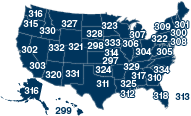Interest arbitration hearings to determine the terms of the 2011 National Agreement between the NPMHU and the Postal Service continued through the first half of December, and now are taking a short hiatus for the holidays. A final decision from the arbitration board probably will not be issued until sometime during the first few months of the new year, depending both on the scheduling of additional hearings and the ultimate scope of the dispute between the parties.
The hearings are being conducted before a three-person arbitration panel – chaired by Herbert Fishgold as the neutral arbitrator – and are focused primarily on economic issues, including wages, benefits, and the composition of the mail handler workforce.
To this point, since opening statements, only the Postal Service has put on witnesses, and the NPMHU has been cross-examining those witnesses one by one. As previously described, the USPS case essentially starts and ends with the dire financial circumstances facing the Postal Service, which are caused, in the Postal Service’s view, primarily by electronic diversion of first-class mail. This means, according to the Postal Service, that the agency essentially is “insolvent,” with more than $36 billion in losses over the past six years, and thus the Postal Service claims to need a total restructuring of its labor costs for mail handlers.
What follows from these arguments is a series of draconian management proposals, including – for current mail handlers – absolutely no general wage increases, no cost-of-living adjustments, and a drastic increase in employee contributions for health insurance to the current rate paid by federal employees. Another proposal from the Postal Service seeks to substantially modify, and effectively eliminate, the current no lay-off clause. In addition, the Postal Service is seeking the authority to hire and to utilize, without any contractual restrictions on scheduling, use, or retention, a total of 25% non-career casual employees, for a total flexibility of more than 40% of the bargaining unit (when part-time flexible employees and part-time regular employees are added to the mix). Finally, for new career mail handlers hired in the future, the Postal Service proposes that their pay rates be 20% lower at the entry level and 20% lower at the maximum level. The bottom line is that the Postal Service seeks to freeze the wages for all current mail handlers, while reducing their take-home pay by approximately 8% to pay for health insurance premiums. For new hires, the USPS proposal would mean a permanent, non-career workforce with low pay and no benefits for one-quarter of employees performing mail handler work, and a reduction of 20% in the wages of newly hired career mail handlers.
To support these proposals, the Postal Service has called a series of witnesses who are familiar with USPS finances and operations. For example, Megan Brennan, the USPS Chief Operating Officer, and David Williams, the USPS Vice President of Network Operations, both testified about the Postal Service’s need to reduce labor costs while increasing workforce flexibility. Deputy Chief Financial Officer Steven Masse testified about the current financial condition of the Postal Service, and outside consultant Peter Bernstein presented testimony about the continuing decline of first-class mail, and how total mail volume is expected to fall to 138 billion pieces by the year 2020. Other USPS witnesses testified about current mail handler compensation and benefits, as well as cost issues related to particular parts of the current mail handler career and non-career workforces.
In contrast, the NPMHU is seeking a restoration of general wage increases and cost-of-living adjustments for current mail handlers, which would be part of an overall financial package that would allow the Postal Service to reduce slightly its overall labor costs in future years. NPMHU representatives have made clear to the arbitration panel that the Postal Service is institutionally incapable of either presenting or agreeing to a rational or common-sense approach to labor costs, and thus it will be up to the NPMHU to propose, and the arbitration panel to adopt in its ultimate award, those contract terms that are necessary to meet all of these requirements.
Meanwhile, although some progress has been made during bargaining on certain issues, including Articles 12 on seniority and reassignments and Article 15 governing the grievance-arbitration procedure, the parties have not come to any tentative agreements on these issues. Meetings to narrow the scope of any arbitration on work rules continue.
Every mail handler should rest assured that the NPMHU is leaving no stone unturned in preparing and presenting the best possible case during the interest arbitration proceedings. The National Office has the resources and the personnel needed to put forward the best arguments for the wage increases, COLA adjustments, and other improvements in the contract that mail handlers deserve, and to prevent, to the maximum extent we can, the draconian proposals being pushed by the Postal Service.
Watch your bulletin board for the latest information, which will be distributed as soon as it becomes available.
